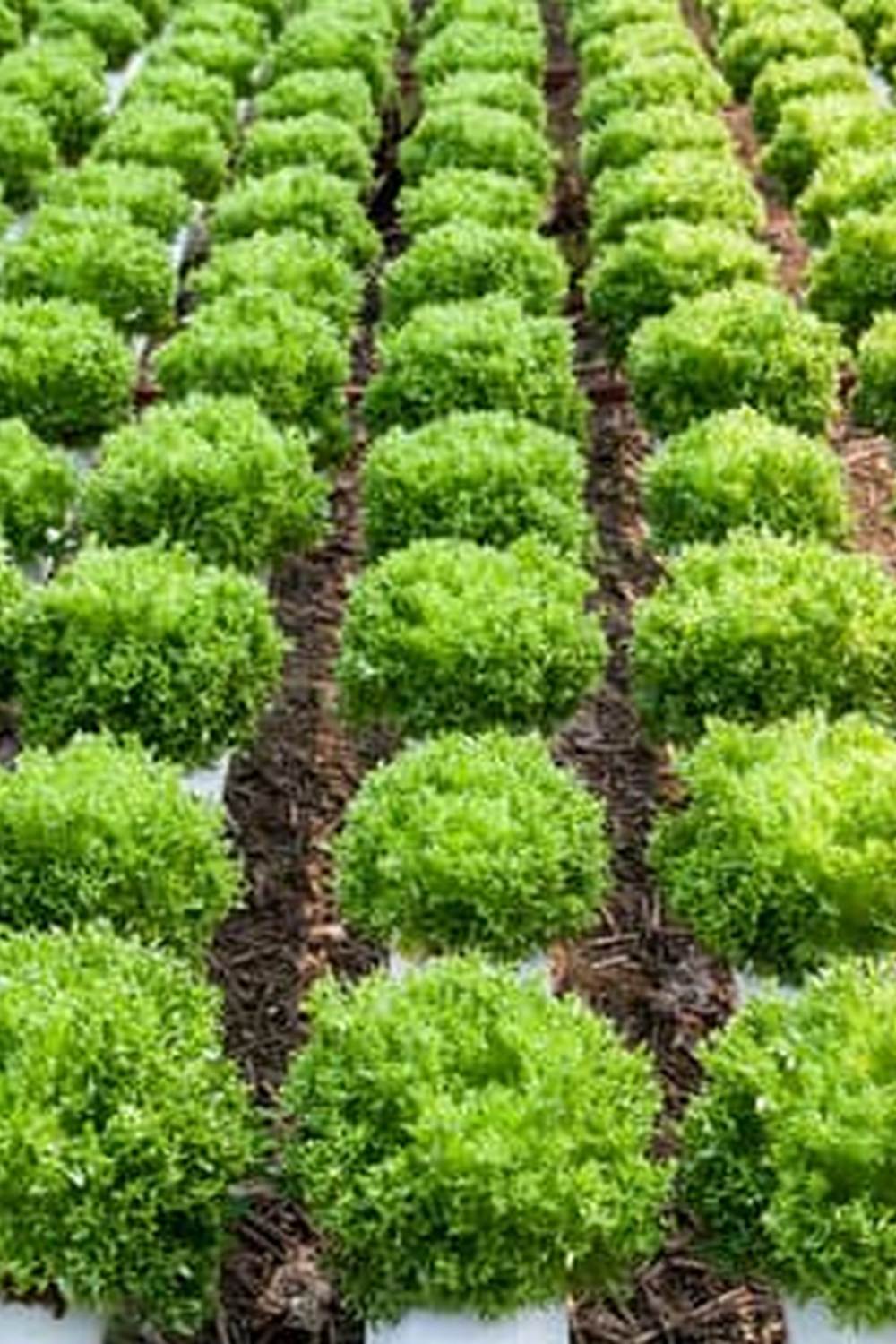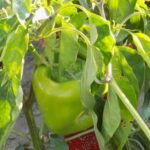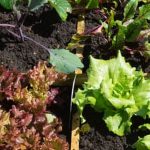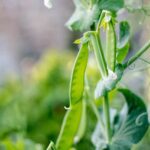Pests in Sacramento Vegetable Gardens are a common concern for many gardeners. These unwanted visitors can wreak havoc on your carefully tended plants, causing damage and frustration. In this article, we will explore the importance of understanding pests in Sacramento vegetable gardens and how to effectively manage them to ensure a thriving garden.
It is essential for Sacramento gardeners to be able to identify the common pests that can invade their vegetable gardens. By recognizing these culprits, they can take proactive measures to control and prevent infestations. From aphids and caterpillars to rodents and snails, knowing what pests to look out for is the first step towards successful pest management.
The impact of pests on vegetable gardens cannot be underestimated. They can destroy crops, stunt growth, and even spread diseases among plants. Understanding how pests can cause harm in your garden is crucial in developing strategies to protect your vegetables. In the following sections, we will delve into the ways pests can affect your garden and explore effective control methods to combat them.
Common Pests Found in Sacramento
Sacramento vegetable gardens are prone to various pests that can wreak havoc on your carefully cultivated plants. Identifying these common culprits is essential in effectively managing and controlling pest infestations to ensure a healthy and thriving garden. Here are some of the most prevalent pests that Sacramento gardeners may encounter:
- Aphids: These tiny insects feed on plant sap, causing damage to leaves, stems, and flowers. They reproduce rapidly, making it crucial to address an aphid infestation promptly.
- Whiteflies: Whiteflies are small insects that suck sap from plants, leading to stunted growth and yellowing of leaves. They also excrete honeydew, attracting mold that can further harm your vegetation.
- Caterpillars: Caterpillars are voracious eaters that can quickly defoliate your plants if left unchecked. They often hide on the underside of leaves or within the plant canopy.
Identifying these pests early on can help you take appropriate measures to control their populations before they cause significant damage to your Sacramento vegetable garden. Regular monitoring and inspection of your plants can aid in early detection and intervention to protect your crops from becoming susceptible to infestations.
- Thrips: Thrips are slender insects that feed by puncturing plant tissues and sucking out the cell contents. They can cause distortion of leaves and transmit viruses to your vegetables.
- Spider Mites: Spider mites are tiny arachnids that feed on plant fluids, leading to stippling or discoloration of leaves. They thrive in hot and dry conditions, making them a common problem in Sacramento’s warm climate.
By familiarizing yourself with these common pests in Sacramento vegetable gardens, you can implement proactive pest management strategies to safeguard your crops against potential infestations. Remember that prevention plays a key role in maintaining a healthy garden ecosystem, so stay vigilant and attentive to the signs of pest activity to ensure the vitality of your plants throughout the growing season.
Impact of Pests on Vegetable Gardens
Pests in Sacramento vegetable gardens can cause significant damage if not addressed promptly and effectively. Common pests found in the region, such as aphids, caterpillars, and whiteflies, are known to feed on plant foliage, suck sap from plants, and even transmit diseases. These pest infestations can lead to stunted growth, wilting leaves, yellowing foliage, and decreased crop yields. Additionally, some pests like gophers and snails can physically damage the roots of plants or consume entire crops overnight.
One of the most common issues caused by pests in Sacramento vegetable gardens is the introduction of plant diseases. Pests like aphids and thrips can transmit viruses such as Tomato spotted wilt virus or Cucumber mosaic virus from infected plants to healthy ones.
Once a plant is infected with a disease, it can be challenging to control its spread within the garden. This not only affects the current crop but also poses a risk to future plantings if proper measures are not taken.
Furthermore, some pests in Sacramento vegetable gardens have developed resistance to certain chemical pesticides over time. This has led many gardeners to explore alternative methods of pest control that are more sustainable and environmentally friendly. By understanding the damage that pests can cause in vegetable gardens and implementing preventive measures early on, gardeners can protect their plants from potential infestations and ensure a bountiful harvest at the end of the season.
| Impact of Pests on Vegetable Gardens | Data |
|---|---|
| Common Consequences | Decreased crop yields, stunted growth, wilting leaves |
| Disease Transmission | Pests can transmit plant viruses leading to infections |
| Chemical Resistance | Some pests have developed resistance to pesticides |
Natural Pest Control Methods
Companion Planting
One effective natural pest control method that Sacramento vegetable gardeners can implement is companion planting. This strategy involves planting certain crops next to each other to discourage pests or attract beneficial insects that prey on harmful ones. For example, planting marigolds around your vegetable garden can help repel nematodes, aphids, and other destructive insects. Additionally, growing basil near tomatoes can deter tomato hornworms.
Beneficial Insects
Introducing beneficial insects into your garden is another eco-friendly way to combat pests in Sacramento vegetable gardens. Ladybugs, lacewings, and predatory mites are examples of beneficial insects that feed on common garden pests like aphids, spider mites, and caterpillars. To attract these helpful bugs, consider planting flowers such as dill, fennel, and yarrow. By creating a habitat that supports these beneficial insects, you can create a natural balance in your garden and reduce the need for chemical pesticides.
Organic Sprays
Using organic sprays made from natural ingredients like neem oil, garlic spray, or insecticidal soap can also be an effective way to control pests in your Sacramento vegetable garden. These products are safer for the environment and beneficial insects while still targeting harmful pests.
Neem oil is known for its ability to disrupt the life cycle of many insects, while garlic spray can repel pests with its strong odor. When using organic sprays, it is important to follow the instructions carefully and apply them during the early morning or late evening when pollinators are less active to minimize any potential harm to helpful insects.
Chemical Pest Control Options
Overview of Chemical Pest Control
Chemical pest control options are commonly used by Sacramento gardeners to address pest infestations quickly and effectively. These methods involve the use of synthetic chemicals to eliminate or deter pests from damaging vegetable gardens. While chemical pesticides can be powerful in eradicating pests, they also come with potential risks and drawbacks that gardeners should consider before using them.
Pros of Chemical Pest Control
One of the main advantages of using chemical pest control options in Sacramento vegetable gardens is their immediate impact on reducing pest populations. In cases of severe infestations, chemical pesticides can provide a quick solution to prevent further damage to crops. Additionally, these products are often readily available at garden centers and can be easy to apply, making them convenient for busy gardeners.
Another benefit of chemical pest control is their effectiveness in targeting specific pests that may be resistant to natural control methods. Some synthetic pesticides are formulated to combat particular types of insects or diseases, offering a targeted approach to pest management. This can help reduce the overall impact on beneficial insects and other wildlife in the garden while controlling the problematic pests.
Cons of Chemical Pest Control
Despite their effectiveness, chemical pest control options come with several disadvantages that Sacramento gardeners should take into consideration. One major downside is the potential harm these products can cause to non-target species, including beneficial insects, birds, and other animals in the ecosystem. Overuse or misuse of chemical pesticides can lead to environmental contamination and disrupt the balance of the natural habitat.
Additionally, repeated use of chemical pesticides can contribute to the development of pesticide resistance among target pests, making future infestations harder to control. This continuous cycle of dependence on synthetic chemicals may also have long-term consequences for soil health and overall ecosystem biodiversity in Sacramento vegetable gardens. Gardeners should weigh these risks carefully when deciding whether to incorporate chemical pest control options into their gardening practices.
Preventing Pest Infestations
Maintaining a pest-free garden in Sacramento can be a challenging task, but with the right preventive measures, you can significantly reduce the risk of pests infesting your vegetable garden. By implementing these tips, you can create a healthy and thriving environment for your plants to flourish without being attacked by unwanted insects.
Here are some effective tips for preventing pest infestations in Sacramento vegetable gardens:
- Implement crop rotation: Rotating your crops each season can help disrupt the life cycle of pests that target specific plants. This practice can also help improve soil health and nutrient levels.
- Use companion planting: Planting certain crops together that complement each other can help deter pests. For example, growing marigolds alongside tomatoes can repel nematodes.
- Encourage beneficial insects: Introducing predatory insects like ladybugs and lacewings can help naturally control pest populations in your garden. Additionally, providing habitat for birds and toads can also contribute to pest management.
In addition to these preventive measures, it is essential to regularly inspect your plants for any signs of pest damage. Early detection can help you address pest issues before they become severe and ensure the overall health of your vegetable garden. By taking proactive steps to prevent pest infestations, you can enjoy a bountiful harvest of fresh produce without the interference of pests in Sacramento vegetable gardens.
Signs of Pest Infestation
Pests in Sacramento vegetable gardens can pose a significant threat to the health and productivity of your crops. Detecting signs of pest infestation early on is crucial in minimizing potential damage and ensuring the success of your garden.
One common pest that plagues Sacramento vegetable gardens is the cabbage looper, a green caterpillar that feeds on the leaves of cabbage, broccoli, and other cruciferous plants. Signs of cabbage looper infestation include irregularly-shaped holes in leaves and visible green larvae on plants.
Another pest that Sacramento gardeners often encounter is the tomato hornworm, which can decimate tomato plants if left unchecked. These large green caterpillars are often difficult to spot due to their coloration, making it essential to inspect your plants regularly for any signs of their presence. Damage from tomato hornworms typically includes defoliation and fruit consumption, leading to reduced yields.
To address pest infestations in your Sacramento vegetable garden early on, consider implementing integrated pest management practices. This approach combines biological, cultural, physical, and chemical control methods to effectively manage pests while minimizing environmental impact. By identifying signs of pest infestation promptly and taking appropriate actions based on the specific pests present in your garden, you can protect your crops and ensure a bountiful harvest.
| Pest | Damage |
|---|---|
| Cabbage Looper | Irregularly-shaped holes in leaves; visible green larvae on plants |
| Tomato Hornworm | Defoliation and fruit consumption; reduced yields |
Success Stories
Overcoming pests in Sacramento vegetable gardens can be a challenging task, but many gardeners in the area have successfully managed pest infestations and maintained thriving crops. One key factor in their success is the use of integrated pest management techniques, which combine various strategies to keep pests at bay without relying solely on harmful chemicals. By learning from these success stories, aspiring gardeners can also protect their vegetable gardens from common pests that plague Sacramento.
One successful strategy used by Sacramento gardeners is companion planting, which involves growing certain plants together to naturally deter pests. For example, planting marigolds around your tomato plants can help repel nematodes and whiteflies. Additionally, practicing crop rotation can prevent the build-up of soil-borne pests and diseases that target specific vegetables. By diversifying plantings and strategically arranging crops in the garden, these gardeners have effectively reduced the risk of pest infestations.
Another effective method employed by Sacramento gardeners is maintaining proper soil health and fertility. Healthy soil promotes strong plant growth, making vegetables more resilient to pest attacks. Adding organic matter like compost or mulch not only improves soil structure but also supports beneficial microbes that suppress harmful pests.
Moreover, providing adequate water and sunlight for your plants can boost their natural defenses against pests in Sacramento vegetable gardens. By following these practices, experienced gardeners have achieved remarkable success in managing pest populations and nurturing flourishing vegetable crops.
Conclusion
In conclusion, maintaining a successful vegetable garden in Sacramento involves more than just watering and fertilizing your plants. It also entails effective pest management to ensure that your hard work does not go to waste. The presence of pests in Sacramento vegetable gardens is a common issue that every gardener must address, as these unwanted visitors can wreak havoc on your crops if left unchecked.
Identifying common pests found in Sacramento, understanding the damage they can cause, and implementing natural or chemical pest control methods are essential steps in ensuring the health and productivity of your garden. While natural pest control methods offer environmentally friendly options, some situations may require the use of chemical pesticides. It is important for Sacramento gardeners to weigh the pros and cons of each method carefully before making a decision.
By taking preventive measures, such as practicing good garden hygiene and regularly inspecting your plants for signs of infestation, you can minimize the risk of pests damaging your crops. Learning to recognize the early signs of pest infestations and addressing them promptly can make a significant difference in the success of your vegetable garden. Ultimately, by prioritizing pest management in your gardening routine, you can enjoy a bountiful harvest and beautiful produce from your Sacramento vegetable garden.
Frequently Asked Questions
What Bugs Are Eating My Vegetable Garden?
There are several bugs that can wreak havoc on a vegetable garden. Common culprits include aphids, caterpillars, beetles, and squash bugs. These pests feed on plants, causing damage to leaves, stems, and fruits.
What Is the Most Common Garden Pest?
The most common garden pest is the aphid. These small insects suck sap from plants, causing stunted growth and yellowing of leaves. Aphids reproduce quickly and can quickly infest a garden if not controlled.
What Is Killing My Vegetable Garden?
Several factors could be killing your vegetable garden. Poor soil quality, lack of sunlight, overwatering or underwatering, nutrient deficiencies, diseases, and pests are common causes of plant death. It’s essential to identify the specific issue to take the appropriate corrective action.

If you’re looking to get into vegetable gardening, or are just looking for some tips on how to make your current garden better, then you’ve come to the right place! My name is Ethel and I have been gardening for years. In this blog, I’m going to share with you some of my best tips on how to create a successful vegetable garden.





